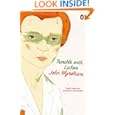With just under 10 hours of 2009 left, I suppose it's time I reflected on the year that has passed. All things considered, I don't wish to ever repeat the year. Although there were some high points, the private heartache I've had to deal with nearly broke me. Some were privy to it, and to those of you who showed love, support and a nearly limitless capacity to buy me beer, I am eternally grateful.
On a more uplifting note, 2009 was the year I finally figured out my place in the universe. Back in February, the local further education college was advertising for biology lecturers and I applied, not expecting to get interviewed. I actually did get interviewed, but did not get the position. In the meantime I took 10 days off to help out a UCL fieldtrip to Ainsa, northern Spain, by driving one of the minivans. My role was as a driver rather than demonstrator, but I couldn't resist helping out one group who were logging a stream section.

A postdoc overheard me and asked me if I was a teacher, and then said I had excellent teaching technique and a very clear way of explaining concepts and getting the students to investigate things on their own initiative. It was something I dismissed initially, but over the next month or so I mulled over it.
One day in May, out of the blue, I got a call from the FE college - they wanted to offer me a job. I accepted on the spot. I started in August, initially part-time, and I seem to have hit the ground running. The students like me and I like them. I consider myself pretty liberal, but I'm finding prejudices I didn't even know I had being knocked out of the water. I have one student who wants to be a palaeontologist because of me, and another who will, in a couple of days' time, know whether they've got into Cambridge University. A student who arrived in my class reluctant to smile actually laughed two weeks before Christmas.

I have a long way to go - I'm only four months into a two-year teaching qualification. I have some students who I just cannot see eye-to-eye with. I'm flying by the seat of my pants, and I've done a very dangerous thing - I've shown a degree of competence and IT literacy. This has served to give me more responsibility, more paperwork and more teaching hours.
I'm doomed!
Teaching and lecturing is by far the best thing I have ever done with my life. It is the most rewarding job I have had, and four out of five days it doesn't really feel like I'm "at work". I'm not going to make lots of new year's resolutions, but if I just say that I am going to work damn hard to be the best teacher I can be, and if everything I do works towards that, then I will end 2010 with a smile on my face.
On a more uplifting note, 2009 was the year I finally figured out my place in the universe. Back in February, the local further education college was advertising for biology lecturers and I applied, not expecting to get interviewed. I actually did get interviewed, but did not get the position. In the meantime I took 10 days off to help out a UCL fieldtrip to Ainsa, northern Spain, by driving one of the minivans. My role was as a driver rather than demonstrator, but I couldn't resist helping out one group who were logging a stream section.
A postdoc overheard me and asked me if I was a teacher, and then said I had excellent teaching technique and a very clear way of explaining concepts and getting the students to investigate things on their own initiative. It was something I dismissed initially, but over the next month or so I mulled over it.
One day in May, out of the blue, I got a call from the FE college - they wanted to offer me a job. I accepted on the spot. I started in August, initially part-time, and I seem to have hit the ground running. The students like me and I like them. I consider myself pretty liberal, but I'm finding prejudices I didn't even know I had being knocked out of the water. I have one student who wants to be a palaeontologist because of me, and another who will, in a couple of days' time, know whether they've got into Cambridge University. A student who arrived in my class reluctant to smile actually laughed two weeks before Christmas.
I have a long way to go - I'm only four months into a two-year teaching qualification. I have some students who I just cannot see eye-to-eye with. I'm flying by the seat of my pants, and I've done a very dangerous thing - I've shown a degree of competence and IT literacy. This has served to give me more responsibility, more paperwork and more teaching hours.
I'm doomed!
Teaching and lecturing is by far the best thing I have ever done with my life. It is the most rewarding job I have had, and four out of five days it doesn't really feel like I'm "at work". I'm not going to make lots of new year's resolutions, but if I just say that I am going to work damn hard to be the best teacher I can be, and if everything I do works towards that, then I will end 2010 with a smile on my face.



























